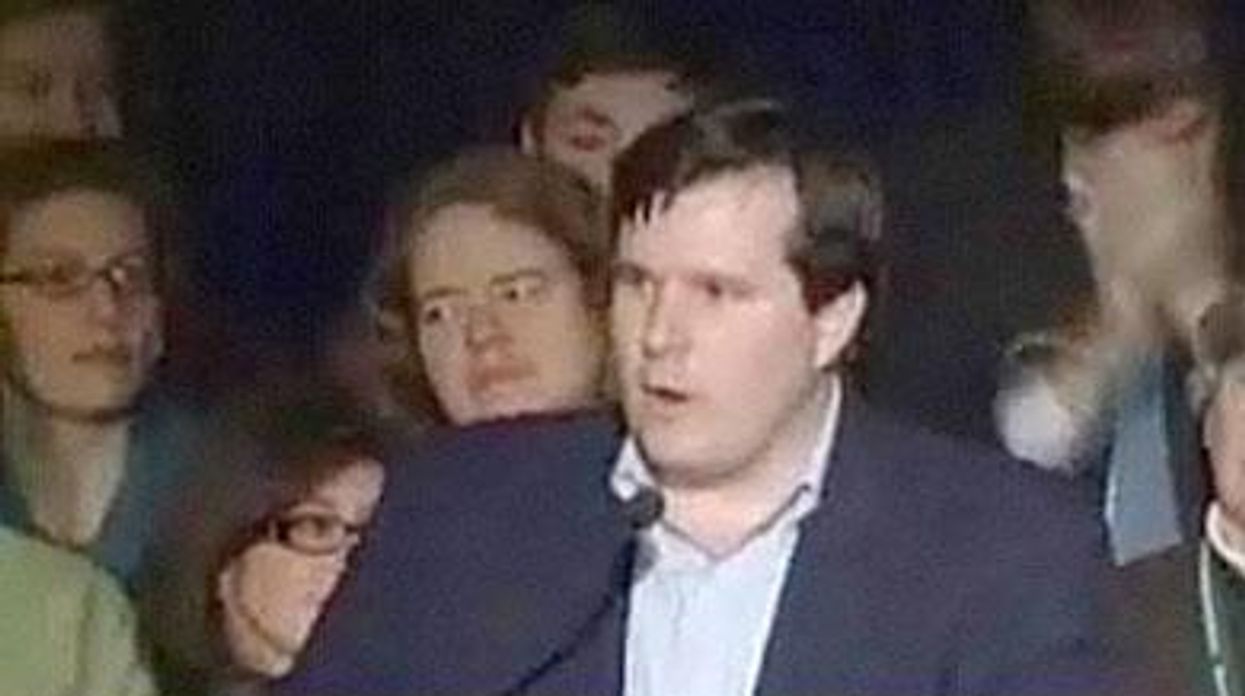
July 23 2010 11:40 PM EST
By continuing to use our site, you agree to our Privacy Policy and Terms of Use.

The manager for the "No on 1" campaign in Maine that sought to keep voters there from overturning marriage-equality legislation last fall pondered the lessons of the unsuccessful effort at a Netroots Nation panel in Las Vegas on Thursday.
"This is still very painful for us to talk about. We put forth a campaign that we thought was going to be the first one in the nation to win," he said of him and his fellow panelists, Julia Rosen with the Progressive Change Campaign Committee, Adam Bink of OpenLeft.com, and Joe Sudbay of AmericaBlog.com, all of whom worked closely with the campaign in different capacities.
Connolly thanked the room of activists for engaging so thoughtfully in rehashing the effort. "This is something that, for a straight ally like me, is one the most important things in my life -- to figure out how we win these campaigns," he said.
Connolly spoke to The Advocate following the panel.
During the panel you said that you thought running a marriage equality campaign during an off-year election was disadvantageous. Why?
If you look at some of the voter turnout rate, we had to spend a lot of our time and resources pushing people to get out and vote, and that took away from resources that we could have otherwise used to persuade persuadable voters. It's always helpful to have other things that voters are excited about. Equality might be important for them but might not be the one thing that gets them out to vote.
Of course if you look [at the bill that added nondiscrimination protections in Maine], it failed in '98 and failed again in 2000, and then finally we passed it in 2005. So there's no guarantees, but I think it's a helpful framework for these campaigns.
What do you think the other side did best in terms of messaging?
Well, they did a lot of things well. But the one ad that I think was an interesting play for them was an ad in the last week to 10 days; it was uplifting and said gay and lesbian families have all the rights they need [through that state's current domestic partnerships], so it's OK to vote "yes" [and overturn the marriage equality law].
After they hammered us on schools and the idea of gay sex being taught in the schools, they switched to this uplifting tone that I thought was very strategic on their part -- basically giving voters permission to vote against us without feeling bad about it for those that might have been on the fence.
Have you had any second thoughts about your own messaging?
I think the messaging that we put forth was very strong, I think the consulting team that did our TV spots did a great job of executing the message we were running on.
I think the bigger question is around the timing of the election, wondering why our supporters didn't go vote. Those are more burning questions versus the coulda/woulda/shouldas on messaging. We were trying to boost turnout and put messages up there that encouraged people to go voted. But as we look through our data, there was a swath of voters who didn't go vote and we need to try to understand why they didn't.
Charlie Kirk DID say stoning gay people was the 'perfect law' — and these other heinous quotes